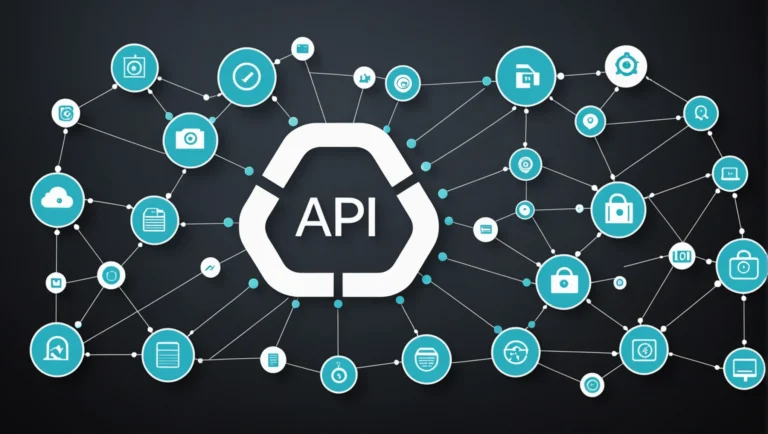
Ensuring the security of cloud-based services is paramount for businesses. As organizations increasingly rely on Application Programming Interfaces (APIs) for seamless integration and data exchange, the need for robust cloud security services has never been more critical. This introduction explores the top cloud security services that are essential for effective API integration. By understanding the importance of securing APIs and leveraging reliable cloud security solutions, businesses can safeguard their sensitive data, protect against cyber threats, and maintain the trust of their customers. Join us on a journey to discover the key cloud security services that can enhance the security posture of your organization and enable smooth API integration in a rapidly evolving technological environment.
Top Cloud Security Services
Where data security is of utmost importance, businesses are increasingly turning to cloud security services to protect their valuable information. Let’s take a closer look at some of the top cloud security service providers, delve into the features and benefits they offer, and compare their security offerings to help you make an informed decision for your business.
Overview of Leading Cloud Security Service Providers
-
Amazon Web Services (AWS): As a leading cloud service provider, AWS offers a comprehensive range of security services, including identity and access management, encryption, and DDoS protection.
-
Microsoft Azure: Azure provides robust security features such as threat intelligence, advanced threat analytics, and secure data encryption to safeguard your data in the cloud.
-
Google Cloud Platform: Google Cloud’s security services include network security, data loss prevention, and security key enforcement to ensure the protection of your sensitive information.
Features and Benefits of Each Service Provider
-
AWS: With AWS, you can benefit from scalable security solutions, compliance certifications, and a global network of data centers for enhanced security and reliability.
-
Azure: Microsoft Azure offers seamless integration with existing Microsoft products, AI-driven security analytics, and a vast array of compliance certifications to meet industry-specific security requirements.
-
Google Cloud Platform: Google Cloud provides advanced threat detection, real-time security insights, and a shared responsibility model that ensures both the provider and the customer play a role in maintaining security.
Comparison of Security Offerings
- When comparing the security offerings of AWS, Azure, and Google Cloud Platform, it’s essential to consider factors such as data encryption standards, compliance certifications, incident response capabilities, and the level of control and visibility provided to customers.
By evaluating these aspects, businesses can choose the cloud security service provider that best aligns with their security needs and budget constraints, ultimately ensuring the protection of their sensitive data in the cloud.
In addition to the mentioned providers, other notable cloud security services include IBM Cloud, Oracle Cloud, and Alibaba Cloud. IBM Cloud offers a range of security solutions like threat management, data encryption, and security intelligence to protect businesses from cyber threats. Oracle Cloud focuses on providing a secure cloud infrastructure with features such as identity management, network security, and data encryption. Alibaba Cloud, a prominent cloud service provider in Asia, offers security services like anti-DDoS protection, web application firewall, and secure content delivery network to ensure the safety of data stored in the cloud.
Furthermore, as the demand for cloud security services continues to grow, providers are investing in technologies like machine learning and artificial intelligence to enhance threat detection and response capabilities. These advancements enable proactive security measures, real-time monitoring, and rapid incident response, strengthening the overall security posture of businesses leveraging cloud services.
When selecting a cloud security service provider, businesses should also consider factors such as regulatory compliance requirements, data residency regulations, and the provider’s transparency regarding security practices and incident response protocols. By conducting thorough due diligence and understanding the specific security needs of their organization, businesses can confidently choose a cloud security service provider that not only meets their security requirements but also aligns with their long-term business goals and objectives.
Importance of Secure API Integration in Cloud Environments
The effective integration of Application Programming Interfaces (APIs) is crucial for businesses looking to streamline processes, enhance user experiences, and drive innovation. However, with the increasing complexity of cloud environments and the growing number of APIs being utilized, ensuring secure API integration has become a top priority for organizations across industries.
Key Practices for Successful API Integration
To achieve successful API integration in cloud environments, businesses must adhere to key practices that not only optimize performance but also safeguard sensitive data and maintain regulatory compliance. One of the fundamental strategies is robust testing, which involves thoroughly assessing the functionality, reliability, and security of APIs before deployment. By conducting comprehensive testing procedures, organizations can identify and address potential vulnerabilities early in the development cycle, reducing the risk of security breaches and system failures.
Proper authentication and authorization mechanisms are essential components of secure API integration. Implementing strong authentication protocols, such as OAuth or API keys, helps verify the identity of users and restrict access to authorized parties only. Additionally, establishing granular access controls and permission levels ensures that sensitive data is protected and that API endpoints are accessed securely.
Data encryption plays a critical role in safeguarding information transmitted between systems during API integration. By encrypting data in transit and at rest, businesses can prevent unauthorized access and mitigate the risk of data breaches. Encryption protocols like SSL/TLS provide a secure communication channel, enabling secure data exchange between clients and servers.
Continuous monitoring of API access and usage is another best practice that organizations should adopt to maintain the integrity and security of their API integrations. By implementing monitoring tools and analytics platforms, businesses can track API performance metrics, detect anomalies or suspicious activities, and respond proactively to potential security threats.
Challenges and Considerations
Despite the benefits of API integration, businesses often encounter challenges that can impede the seamless integration of APIs into their systems. Security concerns, such as data breaches and cyber attacks, pose significant risks to API-driven applications. Compliance issues related to data privacy regulations and industry standards can also hinder the integration process, leading to legal repercussions and financial penalties.
Real-World Case Studies
Real-world case studies showcasing successful API integrations can provide valuable insights into best practices and strategies for secure API management. Platforms like CloudSecurityWeb offer a wealth of resources and examples that demonstrate the importance of expertise, tailored solutions, and proactive security measures in achieving successful API integrations.
Conclusion
By prioritizing API quality assurance, organizations can enhance the performance, reliability, and compliance of their API integrations, ultimately driving business growth and innovation in the digital era.
Future Trends in Cloud Security and API Integration
The integration of cloud services and APIs has become a cornerstone for businesses seeking to streamline operations, enhance efficiency, and drive innovation. However, with this increased reliance on cloud infrastructure and API connectivity comes the critical need for robust security measures to safeguard sensitive data and protect against potential cyber threats. As we look towards the future, it is essential for organizations to stay ahead of emerging trends in cloud security and API integration to ensure a proactive and comprehensive approach to cybersecurity.
Advanced Authentication and Access Control
One of the key future trends in cloud security revolves around the adoption of advanced authentication and access control mechanisms. Implementing multi-factor authentication, biometric verification, and role-based access controls can significantly bolster security posture and mitigate the risk of unauthorized access to cloud resources. Additionally, encryption techniques such as data encryption at rest and in transit, as well as robust key management practices, are crucial for safeguarding data integrity and confidentiality in the cloud environment.
Vendor Vetting and Oversight
Moreover, as businesses increasingly rely on third-party cloud service providers and APIs to power their applications and services, vendor vetting and oversight have become paramount. Conducting thorough due diligence on cloud vendors, assessing their security protocols and compliance certifications, and establishing clear service level agreements (SLAs) are essential steps in ensuring the security and reliability of outsourced cloud services.
API Security Challenges
The evolving landscape of API integration introduces a new set of security challenges that organizations must address proactively. By conducting comprehensive analysis of the API integration landscape, businesses can identify potential vulnerabilities and design robust security controls to protect against API-related threats. Implementing secure coding practices, enforcing strict data validation mechanisms, and conducting regular security audits are critical steps in fortifying API security in the cloud.
Innovative Approaches in API Development
To navigate the complexities of API security in the dynamic cloud technology environment, organizations can adopt innovative approaches that prioritize security in API development. By following a security-first approach, integrating security controls at every stage of the API lifecycle, and leveraging pre-built integration code and best practices libraries, businesses can enhance the resilience of their APIs against cyber attacks and data breaches.
Continuous Integration and Deployment
Furthermore, integrating continuous integration and deployment pipelines into API development processes can streamline quality assurance efforts and enable rapid detection and remediation of security vulnerabilities. By automating security testing, code analysis, and compliance checks within the CI/CD pipeline, organizations can ensure that their APIs adhere to industry best practices and security standards throughout the development lifecycle.
Conclusion
As the landscape of cloud security and API integration continues to evolve, businesses must stay vigilant and proactive in implementing robust security measures to protect their digital assets and maintain customer trust. By embracing emerging trends, adopting innovative security practices, and prioritizing cybersecurity in cloud and API initiatives, organizations can build a resilient security posture that safeguards against evolving cyber threats and ensures the integrity and availability of their cloud-based services.
Conclusion
Selecting the right cloud security services is crucial for ensuring the effective integration of APIs. By prioritizing features such as encryption, access control, and monitoring, organizations can safeguard their data and systems while leveraging the benefits of cloud-based API integration. It is essential for businesses to thoroughly evaluate their security needs and choose a reputable provider that aligns with their requirements to mitigate risks and enhance overall cybersecurity posture. By making informed decisions and staying proactive in addressing potential threats, companies can harness the power of APIs within a secure cloud environment.







